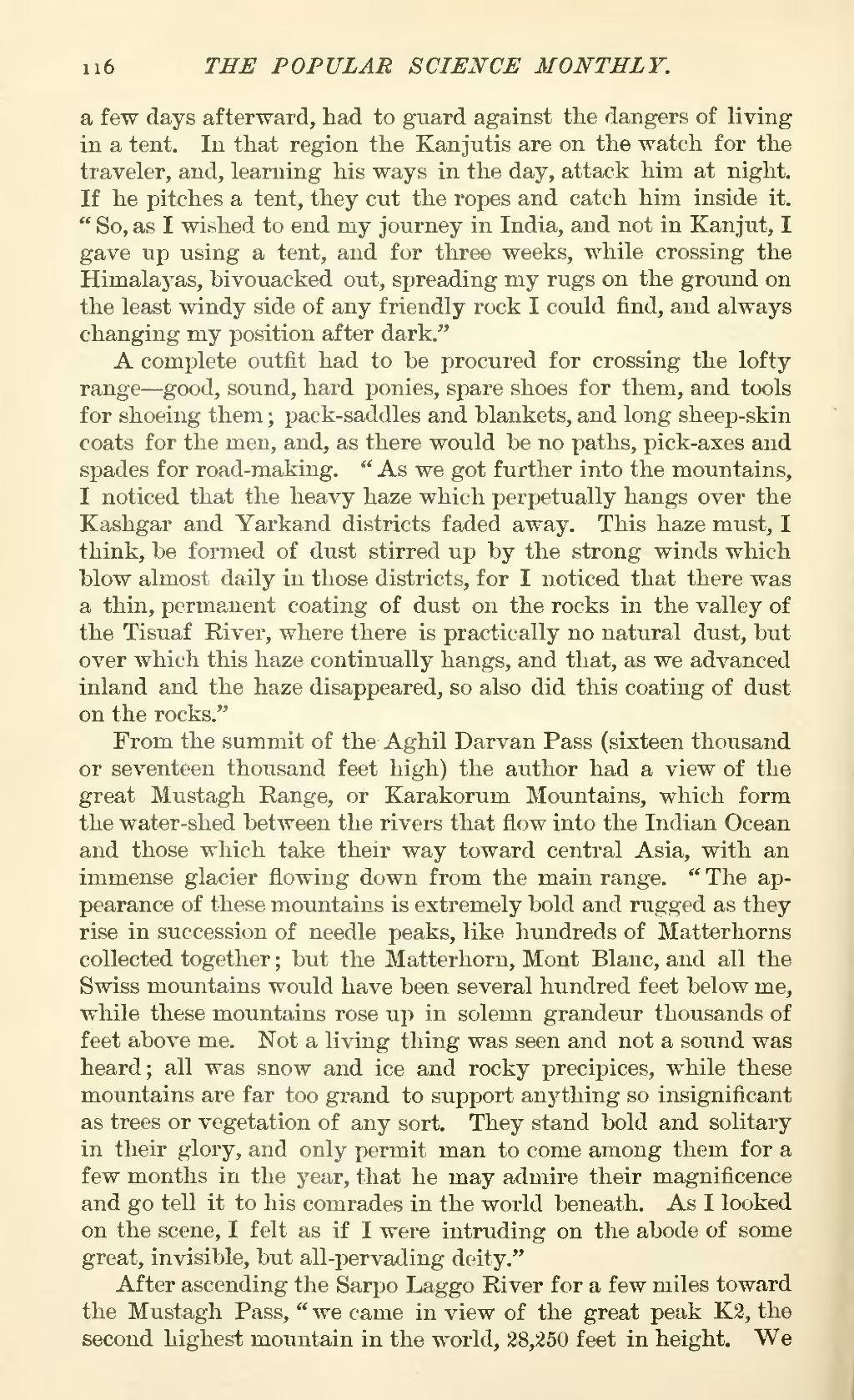a few days afterward, had to guard against the dangers of living in a tent. In that region the Kanjutis are on the watch for the traveler, and, learning his ways in the day, attack him at night. If he pitches a tent, they cut the ropes and catch him inside it. "So, as I wished to end my journey in India, and not in Kanjut, I gave up using a tent, and for three weeks, while crossing the Himalayas, bivouacked out, spreading my rugs on the ground on the least windy side of any friendly rock I could find, and always changing my position after dark."
A complete outfit had to be procured for crossing the lofty range—good, sound, hard ponies, spare shoes for them, and tools for shoeing them; pack-saddles and blankets, and long sheep-skin coats for the men, and, as there would be no paths, pick-axes and spades for road-making. "As we got further into the mountains, I noticed that the heavy haze which perpetually hangs over the Kashgar and Yarkand districts faded away. This haze must, I think, be formed of dust stirred up by the strong winds which blow almost daily in those districts, for I noticed that there was a thin, permanent coating of dust on the rocks in the valley of the Tisuaf River, where there is practically no natural dust, but over which this haze continually hangs, and that, as we advanced inland and the haze disappeared, so also did this coating of dust on the rocks."
From the summit of the Aghil Darvan Pass (sixteen thousand or seventeen thousand feet high) the author had a view of the great Mustagh Range, or Karakorum Mountains, which form the water-shed between the rivers that flow into the Indian Ocean and those which take their way toward central Asia, with an immense glacier flowing down from the main range. "The appearance of these mountains is extremely bold and rugged as they rise in succession of needle peaks, like hundreds of Matterhorns collected together; but the Matterhorn, Mont Blanc, and all the Swiss mountains would have been several hundred feet below me, while these mountains rose up in solemn grandeur thousands of feet above me. Not a living thing was seen and not a sound was heard; all was snow and ice and rocky precipices, while these mountains are far too grand to support anything so insignificant as trees or vegetation of any sort. They stand bold and solitary in their glory, and only permit man to come among them for a few months in the year, that he may admire their magnificence and go tell it to his comrades in the world beneath. As I looked on the scene, I felt as if I were intruding on the abode of some great, invisible, but all-pervading deity."
After ascending the Sarpo Laggo River for a few miles toward the Mustagh Pass, "we came in view of the great peak K2, the second highest mountain in the world, 28,250 feet in height. We

